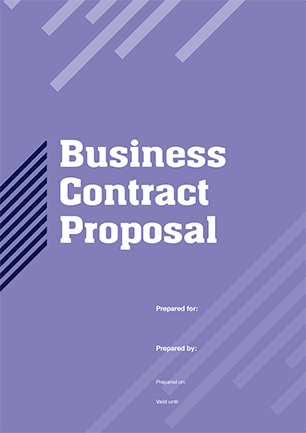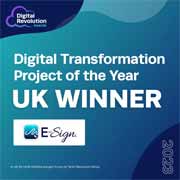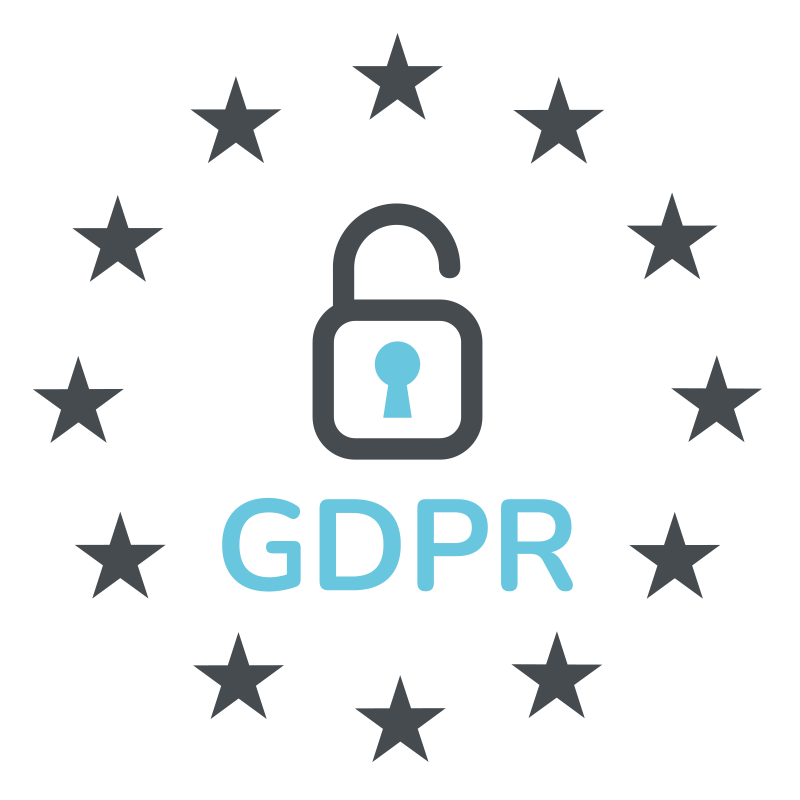Home | News & Insights |
How to Negotiate Successfully: The Do’s and Dont’s of Contract Negotiation
Laura Cain
Marketing & Brand Manager
PUBLISHED
8th March, 2024
Negotiating the terms of a contract is a key part of any successful business, but it can be a long and sometimes frustrating process. No matter who you’re organising a contract with, it should be handled with care, as both parties will want to ensure that they are getting the right outcome for their needs.
In this guide, we’ll be exploring how to negotiate a business contract with key tips to help you secure the best deal for your business, as well as making sure the other party is happy with their side of the agreement.
What is Contract Negotiation?
Contract negotiation is the process in which two or more parties discuss the terms and conditions of a contract and reach a legally binding agreement that benefits both of their interests. The negotiation period is a good opportunity to resolve any concerns or disputes that either party may have and establish favourable terms that mitigate business risks as much as possible. Before the document is signed, all or parts of a contract can be negotiated until everyone is satisfied with the contents.
What are the Main Goals of the Negotiation Process?
A key goal of any contract negotiation is to set up your business for long term success and establish lasting relationships with individuals or companies that can help you achieve that success. Also, reaching beneficial terms for all parties involved is important as it builds a foundation of trust that allows you to create advantageous working partnerships for everyone in the contract.
In order to achieve these goals, negotiators must identify the main interests that are important to them, assess any alternatives and points that are open to compromise, and ultimately reach an agreement on the terms. Each contract has one underlying aim and by understanding what that is, discussions from both sides can go more smoothly with agreeable terms being established quickly and efficiently.
Top Tips for Negotiating a Contract

Do your research
Research is an essential part of any negotiating process as a lack of preparation and understanding could mean you walk away without the best deal, and rather than a balance between what each side is getting from the agreement, the other party benefits more from the terms. Your research should include relevant market and industry trends, the contract itself, and of course, the party that you’re negotiating with.
Be sure to consider what their interests, goals and objectives are, their strengths and weaknesses and any outside factors that might influence the negotiations. The more you know about them, the less likely it is that they will surprise you with terms or demands you weren’t expecting. It can also be beneficial to research their past agreements and relationships to gain a better insight into their preferred negotiation style and their tactics.
Prepare your objectives and priorities
A significant part of contract negotiations is compromise, one party may have to make concessions for the benefit of the agreement going ahead and ensuring the terms are fair. With this in mind, prior to negotiations you should identify your key objectives and priorities.
This means everyone can have a clear understanding of what you are willing to compromise on and the objectives that are deal breakers. Additionally, having your objectives prepared can help when reviewing contract proposals as you will be able to highlight terms that are aligned with them and those that are less favourable.
Listen and communicate effectively
Good communication is essential to a successful negotiation. It’s not a presentation, it should follow the structure of a balanced conversation between both parties, with everyone having the opportunity to speak and listen in equal measures.
Practise active listening to make sure that you are not only hearing what the other person is saying, but understanding their feelings and point of view. You might want to acknowledge what has been said with a question or offer validation in another way, but it’s important to recognise when the right time is to listen and talk. Both verbal and nonverbal cues can be a key element of positive communication.
Take your time
It’s natural to want to get through the negotiation process quickly as they aren’t always a favourable part of doing business, so there’s a temptation to rush through it to reach the next stage of meeting the terms of the contract. However, this can sometimes lead to mistakes and misunderstandings that will be detrimental later. If you’re involved in a bad deal you could be signing away years of profits by chasing deliverables that are unsustainable.
Take your time at each stage of the negotiation, making sure you read every draft and proposal in detail. Also, it’s equally important to ensure that the other party understands the contract and what they are agreeing to if they sign. A contract is an opportunity for collaboration and supporting one another, not trying to outdo the other person.
Use templates
Business contracts can be complex documents that contain important legal information, which can be overwhelming if you’re not too familiar with them. This can make it challenging to draft your own contracts and potentially mean you risk accidentally excluding key legal details, or lead to a mistake that impacts the terms of the agreement.
Contract templates are a great option to avoid these challenges and create tailored legally binding documents within minutes. Instead of trying to write up your own contract, which can take a substantial amount of time and incur costs if you use legal support to review the document, modifying a pre-built template can be a more effective option for your business.
eSign offers several free templates that our users can access including a business contract proposal, so you can quickly and easily create bespoke contracts to suit your specific requirements. It’s important to note that if you’re on a 14-day free trial with eSign, you will only be able to use and edit 5 pre-built templates. These are:
- Technical Services Consulting Agreement
- Business Contract Proposal
- Freelance Grphic Design Proposal
- Model Tenancy Agreement
- Graphic Design Contract
What not to do When Negotiating a Contract
Don’t agree to terms you don’t understand
In a fair negotiation, you should always have a clear understanding of what terms are being discussed and the expectations of each party once the agreement has been signed. If you sign an agreement without fully knowing what you’re agreeing to, it can lead to misunderstandings and risk jeopardising the relationship with the other party, or cause productivity issues with your business internally. Don’t be afraid to ask for clarification on any points if you need it, a contract is a legally binding document, so it’s important to be completely confident with all the terms it contains.
Don’t be aggressive and focus on facts
Whilst being assertive on your objectives is important during negotiations in ensuring your priorities are met, be mindful of how you communicate that assertiveness to avoid conveying any signs of aggression. Contract negotiations can escalate with emotions running high when discussing factors that you feel passionately about. However, remaining calm is the best way to be successful during discussions. It’s important to establish a positive relationship with the other party, based on facts and with each entity benefitting from the agreement in some way.
Don’t reveal too much information too soon
Successful negotiations often involve holding back certain details rather than revealing all information directly from the start. This ensures that you have room to negotiate on certain terms if needed. For example, if you discuss your bottom line too early into negotiations, it can give the other party an opportunity to strategise and influence the terms of the contract to be more favourable to them. Keeping this information back can give you more negotiating power, flexibility, and opportunities for value creation.
The Different Types of Negotiating Styles

There are five main negotiation styles that are commonly used in business interactions. These are:
- Compete – the most aggressive approach to negotiating, typically used by individuals who are competitive and want to ‘win at all costs’. This is not the best negotiating style for contracts.
- Collaborate – the opposite approach to compete, the collaborative style looks to seek the best outcomes for all parties involved making it a commonly used style when negotiating contracts.
- Compromise – the compromise style involves altering your position and giving up something you want in order to get a more favourable outcome for all parties. Compromising is an integral part to successful contract negotiations.
- Avoid – avoidance is a technique that is used when a business doesn’t want to make a deal or if they’re not interested in the other party’s needs. It can also be an effective way of stalling until you can gather more information. However, it isn’t an approach that is usually suited to contract negotiations.
- Accommodate – the accommodating style involves relinquishing all your needs to give the other party what they want, avoiding conflict and reducing the risk of them walking away from the deal. Some accommodation techniques can have a place in contract negotiations but mostly collaboration and compromising are the most popular styles for this purpose.
Understanding Relevant Contract Laws
Contract law in the UK can be complicated but by ensuring you have a clear understanding of what should be included in this type of document, you can ensure it is error free and meets all the requirements of a legally binding contract. There are certain criteria that must be met in order for a contract to be legally valid.
- Offer – one party makes an offer to the other
- Acceptance – the other party accepts the offer
- Consideration – the parties provide a consideration to each other (such as a promise to pay money or something of value, or to complete an action)
- Intention – both parties have the intention to be legally bound by the contract
- Contractual capacity – the parties are both legal entities that are recognisable by law, e.g., companies, limited liability partnerships, and individuals at least 18 years old

Finalise Contracts with Effective Negotiation
As we have explored, there are several key ways to successfully negotiate a contract and with the help of eSign templates, you can create and send legally binding contracts quickly and efficiently.
Modernise your workflow and reduce your carbon footprint by utilising eSignatures for your documents. The eSign platform is easy to use and with different plan options available you can choose the option that best suits your needs. Get started today by registering for a 14-day free trial and experience the simplicity and benefits of implementing eSign into your business.
 Facebook
Facebook
 X (Twitter)
X (Twitter)
 LinkedIn
LinkedIn











